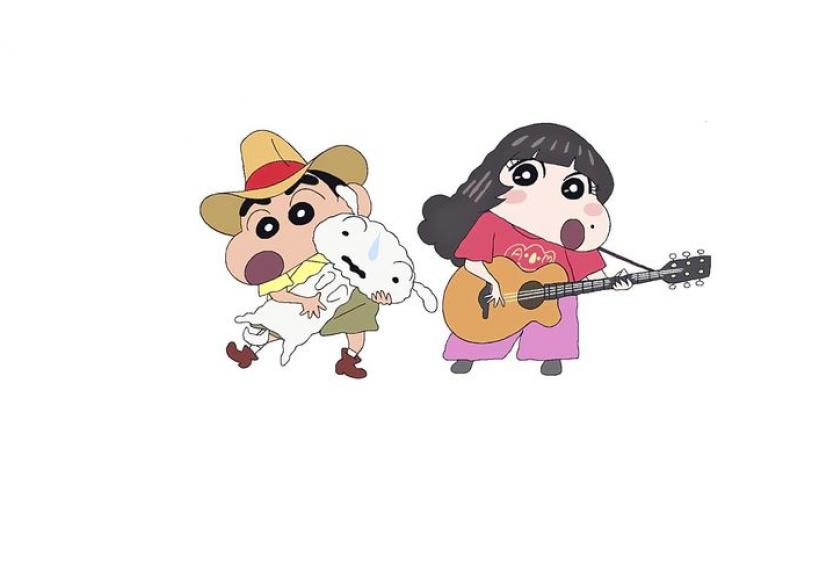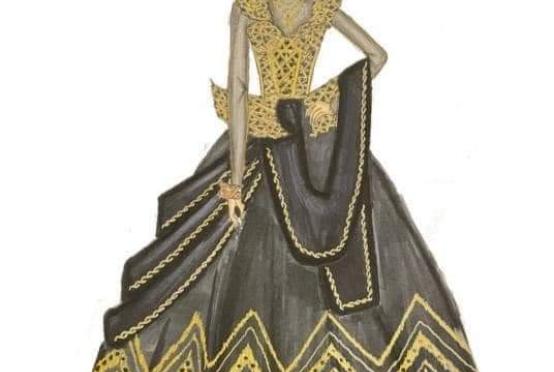The year 2018 was all about Aimyon. The singer-songwriter had a major hit with “Marigold” and made her debut on NHK’s Red and White Year-end Song Festival. Many people who were scratching their heads at her strange name only a year ago now cannot get her powerful, husky voice out of their heads.
Her momentum shows no signs of slowing down. Just this year, she turned in an electrifying performance at her first concert at the Nippon Budokan hall, and contributed the theme song for the movie version of the popular anime “Crayon Shin-chan.”
A veteran Yomiuri Shimbun reporter described Aimyon’s name as “gibberish” in a column last November. When I told her about the article, she said: “I think it’s perfectly OK. Of course, my name is puzzling. The stranger the name or the title is, the more attraction it has. Looking back, though, I do sometimes wonder what it would be like to perform under my real name.”
Aimyon spoke in a matter-of-fact style, her eyes cool and calm.
Her lyrics have an almost painfully sharp edge to them, while her vocals have cross-sexual appeal and alternate between sounding like a girl and a boy. “Charisma” is the perfect word to describe the sight of her singing and plucking an acoustic guitar.
Wasn’t it around summer last year when “Marigold” came out and Aimyon fever began sweeping the country?
“Marigold” is a sentimental J-pop song with lyrics that conjure up powerful visuals, like “Mugiwara no boshi no kimi ga, yureta marigold ni niteru” (In your straw hat, you look like swaying marigold). The song dominated the most-streamed rankings, earning Aimyon the nickname “queen of streaming.”
What does she think of her breakthrough?
“I don’t know what to think. People around me often tell me, ‘This is crazy. Everybody knows you,’ but I’m like, ‘Do they really?’ I’m not so sure that’s true,” she said.
Aimyon’s songs are provocative. That’s partly because of her hard-hitting lyrics, such as “Shine” (Die) and “Sex bakkano omaera nankayori aijo motome ikitekitennoni” (I’m seeking love in my life more than you guys who only think of sex). It’s also because her songs express a kind of love that is heart-breakingly pure.
However, she says her top priority is creating “authentic J-pop.”
“In my heart, I believe that making authentic J-pop is the right thing to do. I’m not good at difficult things, and I’m not a great guitar player,” she said.
“Marigold,” meanwhile, has captured the hearts of many, including Aimyon herself.
“If we lived in a world where people couldn’t listen to this song, I couldn’t continue with music. I’d quit,” she said of the incredible feedback she has received for the song.
Inspired by parents, friends
What kind of child was Aimyon, now 24?
Born on March 6, 1995, she is the second of six siblings from Nishinomiya, Hyogo Prefecture. Her father was working in an audio-related job. Is her talent in music the result of an elite education?
“Not at all. My father happened to play the guitar at home at times, and he let me play his instrument. But he told me, ‘The guitar is an instrument you teach yourself’ and threw a guitar book at me. I hated textbooks and stuff, so I soon gave it up,” she recalled.
Aimyon would often ransack CD shelves in her father’s room. “I found Spitz, Hamasho (singer Shogo Hamada), Michael Jackson, all on the shelves,” she said. She grew up in a family environment in which windows were all wide open at cleanup times. She is often asked which musicians influenced her. Her answer is: “If I were to find my roots, it would be my father and mother. They let me listen to good music.”
She quit the guitar at one point, but she took it up again when she was in her third year of junior high school and an English teacher from the United States gave her his old guitar before leaving Japan, saying, “It’s cheaper in the States.” While playing songs by Spitz and other artists, she also started composing music.
“I’m really bad at studying, so I hated reading and learning guitar chords. I thought that maybe I could learn them if I wrote my own songs. So I started writing music by following other examples,” she said.
She posted a video of her performance on YouTube, which was spotted by a music agency. The agency contacted her through Twitter and opened the door for her to start her career in music. She made her major-label debut in 2016, and her album “Shunkanteki Sixth Sense,” which includes “Marigold,” has sold over 120,000 copies and counting.
What is behind the stage name Aimyon?
“It’s my nickname from the time when I was in my third year of junior high school,” she said. “A friend of mine gave me the nickname. I sang about her in the song ‘〇〇 chan’ (Marumaru-chan).”
That song is about a woman who lives a very hard life. The lyrics introduce her as having slept with a guy she is not in love with and depending on a surgeon to look pretty.
“We’re still on good terms, and she sometimes comes to my place. She says to me, ‘Maybe you’re popular because of your stage name, so give me some money, like royalties.’ I’m ignoring her on that,” she said.
A family with a good sense of music, and a stimulating friend. Influence from around her may have made Aimyon what she is now.
‘Crayon Shin-chan’ theme song
The theme song of the new “Crayon Shin-chan” film — “Eiga Crayon Shinchan Shinkon-ryokou Hurricane — Ushinawareta Hiroshi” — is “Harunohi” by Aimyon. She has written songs for films and TV dramas, but this song is filled with her love for the lead character, Shin-chan.
The TV anime adaptation of the manga “Crayon Shin-chan” started in 1992. For Aimyon and others of her generation born in 1995, the anime is “something you’ve watched before realizing it,” she said.
She added a little-known fan-favorite episode from the manga to the song. Kita-senju Station, which appears in the first part of the lyrics, is the place where Shin-chan’s father, Hiroshi, proposed to Misae, who was to become Shin-chan’s mother.
“When you have the honor of writing the theme songs of the work you’ve been a fan of for a long time, there’s this atmosphere that forces you to say, ‘I love this work,’ and I really hate such an atmosphere. I want to say it with music,” she said, adding that she did not reread the manga or rewatch the anime when she composed the song.
In the film, Shin-chan’s family — the Noharas — visit Australia for his parents’ much belated honeymoon and get involved in a great yet dangerous adventure. Although the film was yet to be completed while Aimyon was recording the theme song, she was able to see an illustration of a family photo of the Noharas, which was made at an early stage of production planning. The illustration made her cry, she said.
Aimyon and her family had a photo of them taken when she was leaving for Tokyo.
“We are a family of eight, and it was difficult to get us all together. Maybe my father wasn’t there [that day] because of work. Family photos are great, aren’t they?” she said.












